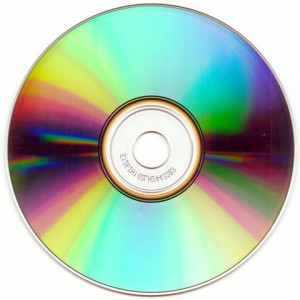 Every so often, it’s kind of instructive to look around at other new media and see how their problems compare to good ol’ e-books’. Case in point, physical media vs. electronic. Home Media Magazine has a report on a Comic-Con panel of DVD and Blu-ray producers that more or less turned into a gripe session as producers of disc media complained that they simply aren’t getting the respect they thought they should be in this new high-definition-streaming world.
Every so often, it’s kind of instructive to look around at other new media and see how their problems compare to good ol’ e-books’. Case in point, physical media vs. electronic. Home Media Magazine has a report on a Comic-Con panel of DVD and Blu-ray producers that more or less turned into a gripe session as producers of disc media complained that they simply aren’t getting the respect they thought they should be in this new high-definition-streaming world.
The problem that disc media share is different from book media in interesting ways. Their bugaboo isn’t the new digital version, the streaming and digital renting. In fact, the disc producers had some of the same objections to digital that a lot of paper old guard had to e-books—you don’t really “own” the content you buy.
Their problem is pretty much the exact the opposite—that most people still like DVD and Blu-ray is the same sort of collector’s market that Laserdisc was back in the day. You need a decent home theater setup to get any good out of Blu-ray and most people simply aren’t moved to upgrade. You could compare it to the early-adopter days of e-books, when relatively few people liked them—except in this case, it’s unlikely there will ever be a Kindle equivalent.
But it’s funny just how close some other complaints are to book advocates’ gripes. For example:
Another problem according to [Star Trek: The Next Generation Blu-ray producer Robert Meyer] Burnett is that rapid advancements in technology have dented attention spans of those who grew up in the video game era.
“There’s been a seismic shift in our culture,” Burnett said. “Youth culture has changed. Movies have a very different place in our culture than they did 20 years ago. They’re gamers now.”
Does that kind of gripe sound familiar?
One interesting thing is that, unlike five years ago, nobody seems to be hastening to predict “the death of physical media.” The panel’s prediction is that physical media will become value-added collector editions while the mass market moves on to streaming. That’s another common prediction for paper books, though it seems to be coming true faster for video media—perhaps because more people watch video media than read books these days, or maybe the sort of person who prefers a paper book to electronic is going to be more old-fashioned in their ways than the sort of person who prefers physical video media.
They also think studios need to adjust their expectations when it comes to releasing 4K Ultra HD video titles, which are going to be even less appealing to the mass market.
“You’re looking at it as if you don’t sell a million copies of something then you’re deemed a failure, and they can’t even sell 100,000 copies of something [on Blu-ray],” [The Hunger Games disc producer Cliff] Stephenson said. “4K should be the same thing. They really have to look at what it really is and what it should be and not try to make it something that it will never be.”
It really does make you thankful for how simple the book and e-book market is by comparison, doesn’t it? Nobody’s rushing to come out with a new higher-definition digital book format that consumers will all have to dump their old e-books and upgrade to. On the other hand, e-books have their own ongoing multi-format issues, whereas VHS vs. Beta, DIVX vs. DVD, and Blu-ray vs. HD-DVD all settled out pretty quickly.
It’s really going to be interesting to see where all this goes.


































I can see how super-duper high resolution video might be of value to someone seeing a training film on brain surgery, say, or a nature documentary; but that makes up only a tiny proportion of what people watch. My response to huge hi-res big screen closeups is usually something like: “Hmm, Jennifer Aniston still has that pimple, then”, or “Makeup a little sloppy around the left ear”. It doesn’t enhance the viewing experience, it detracts from it.
Maybe we should go back to the old days, when men were allowed to face the camera unaltered, while women were always filmed through a screen of gauze or a smear of vaseline. Only this time for everyone, of course.